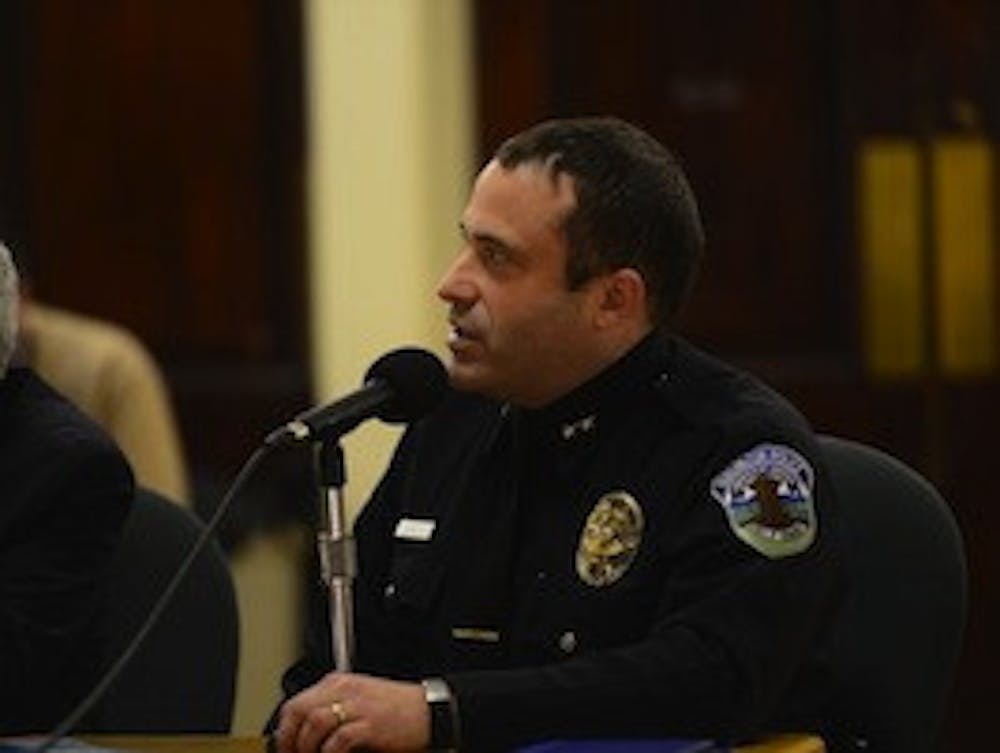Burlington Police Chief Brandon del Pozo recently outlined his strategy to combat the rising opiate crisis that has gained attention both within Vermont and nationally. Various gangs have formed active drug networks in Burlington, causing concern for public health and safety. The mayor of Burlington, Miro Weinberger, has decided to give the city police the power necessary to fight drug trafficking and crimes linked to the rising tide of opiate addiction.
“Through sustained commitment to on-the-ground community policing and better coordination among all law enforcement and public health agencies engaged in addressing opiate abuse, we will turn back this trend,” Weinberger told the the Burlington Free Press.
Del Pozo expressed commitment to these ideals. In an effort to rid Vermont of opiate problems, he hopes to devote resources to street-level community policing and encourage treatment for addicts rather than jail time. In addition, del Pozo believes it would be beneficial to direct the majority of attention towards the mid and high-level drug dealers and traffickers instead of focusing on lower level users and dealers.
“We’re not trying to arrest our way out of this problem. We’re not trying to saddle small-time users with criminal records,” del Pozo said.
In order to achieve these goals, del Pozo plans to hire a full force of one hundred officers. He advocated increasing foot patrols and bike controls, as well as stopping as many street drug deals as possible. Additionally, del Pozo supports an approach that involves differentiating between those who are selling drugs for profit and those who are selling drugs to further endorse their addictions. He has also stated that he is interested in offering amnesty to opiate addicts who are willing and able to approach the police for help with their situation.
In conjunction with police efforts, doctors in Vermont will be advised to prescribe with caution, as the opiate addiction problem is partially attributed to doctors who over-prescribe painkillers. Vermont Health Commissioner Harry Chen and UVM Medical Center CEO John Brumstead will work alongside del Pozo to increase the resources available for those with opiate addictions.
The heavy focus of resources, time, and effort to combat opiate abuse is rooted in a human toll: drug overdose calls in Burlington rose from 34 in the past three years to 69 in 2015. Two drug-related shootings in Burlington resulted in fatalities within the past year.
Opiate addiction has also increased the number of crimes and thefts to occur around Burlington. When compared to rates from 2012 to 2014, robberies have risen 31 percent, assaults 22 percent, and retail theft 14 percent. Opiate addiction has proven especially prominent in the Old North End of Burlington.
Contributing even further to the problem, the prominence of the drug market has pushed more women towards prostitution and fueled the market for firearms in Vermont. Del Pozo noted that he is especially disturbed and concerned about the element of sex trafficking that accompanies the drug trade.
Unfortunately, Vermont will continue to be a hot spot for drugs if action is not taken. Drug dealers from out of state often prefer to sell them in Vermont, as opposed to major cities, because their wares are significantly more profitable when they constitute a significant portion of the market.
However, del Pozo remains confident that the situation in Burlington can be solved, and it is not yet outside the realm of police and governmental control.
“It’s not an overall tidal wave problem. It’s growing and it brings violence, but it’s manageable for a city this size,” del Pozo said.
Chief del Pozo Confronts Opiate Crisis

Comments



